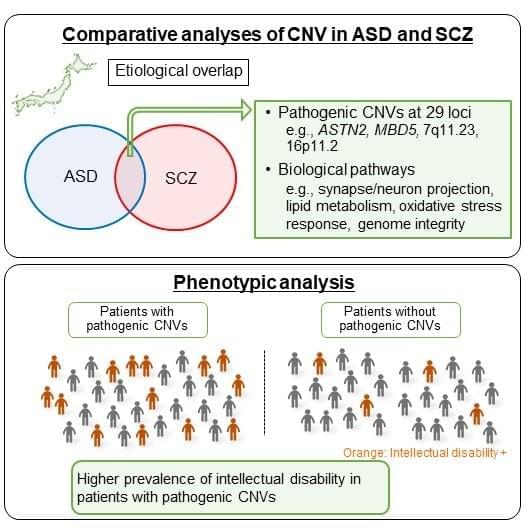Common genetic variants may underlie autism spectrum disorder and schizophrenia across human populations, according to a study appearing September 11th in the journal Cell Reports. In line with previous studies in Caucasians, the researchers found that Japanese individuals with autism spectrum disorder and schizophrenia have overlapping copy number variations (CNVs)—inter-individual variations in the number of copies of a particular gene.
“The strength of our study is the systematic head-to-head comparison of pathogenic CNVs and biological pathways between autism spectrum disorder and schizophrenia,” says senior study author Norio Ozaki of Nagoya University Graduate School of Medicine. “Previous studies in Caucasian populations found overlap in pathogenic CNVs between the two disorders, but their analyses were limited to a small number of genes and CNV loci.”
Autism spectrum disorder and schizophrenia have complex inheritance patterns, with multiple genetic and environmental factors influencing disease risk. Available evidence points to genetic overlap between the two clinically distinct disorders. For example, they tend to co-occur at a higher rate than would be expected in the general population, and a large epidemiological study showed that a family history of schizophrenia in first-degree relatives is a risk factor for autism spectrum disorder. In particular, previous studies have revealed that these two disorders are associated with an increased burden of CNVs, and that rare CNVs in specific loci are shared risk factors for both disorders.
